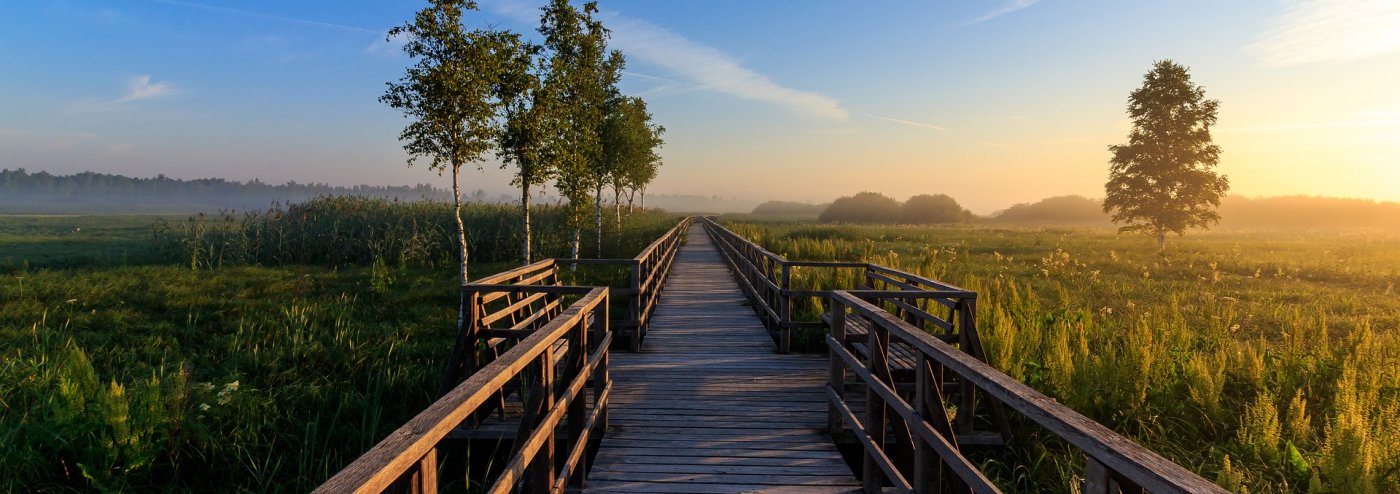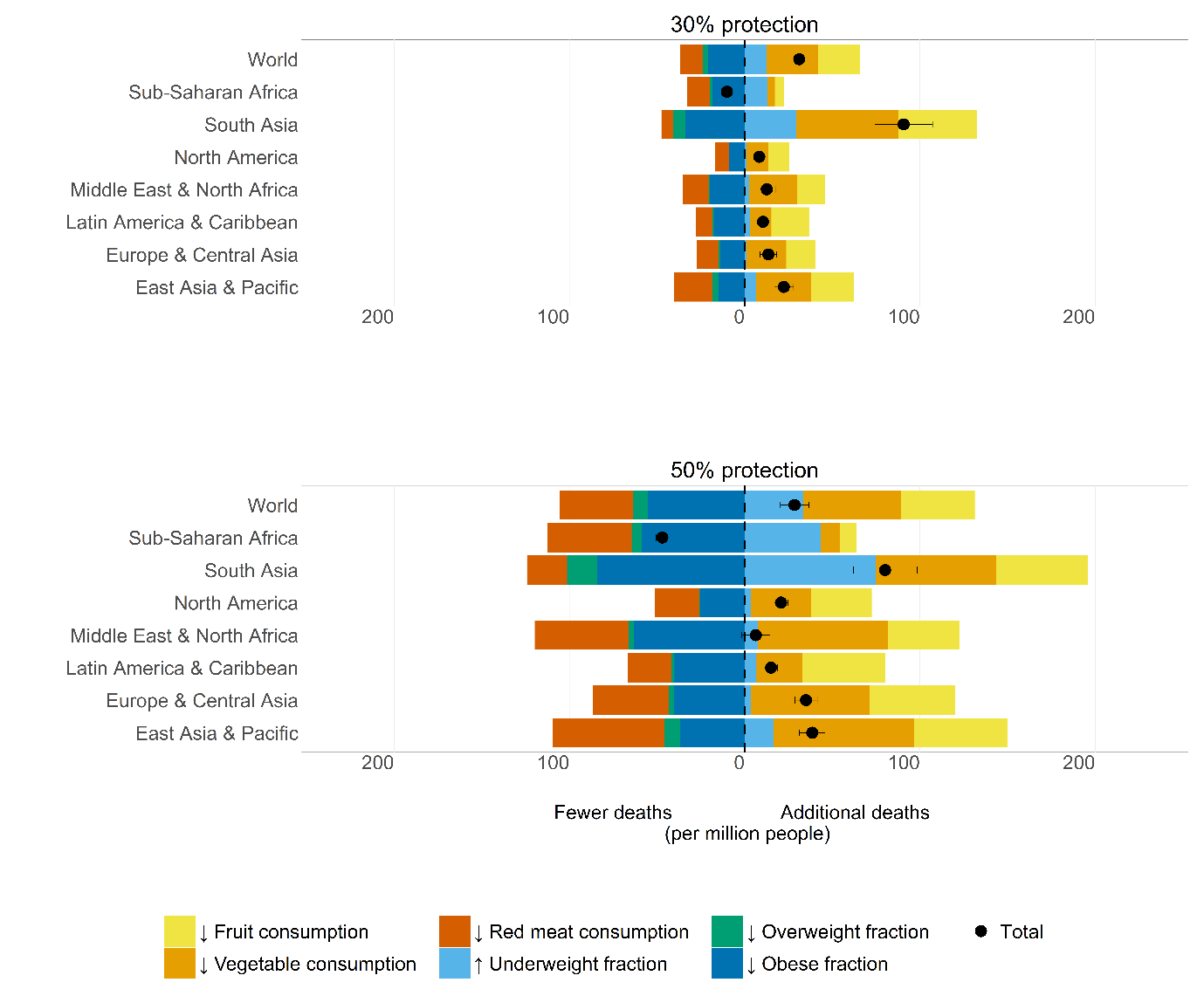
Protecting land area for conservation could have adverse impact on health and food
New research from scientists at KIT, the University of Aberdeen, the University of Edinburgh and the International Institute for Applied Systems Analysis (IIASA) in Austria has found that strictly protecting global land area for conservation – a key approach to protecting biodiversity - could have an adverse impact on human health and food security in some parts of the world.
The team modelled strict conservation protection of 30% and 50% of the terrestrial land surface for biodiversity and found that global and regional food prices increased as a result, which in turn affects food security and human health. Higher food prices increase the number of underweight individuals across world regions and also reduces fruit and vegetable consumption, which causes an increased number of human deaths from diseases associated with malnourishment and low fruit and vegetation consumption.
Developing regions are worst affected by reduced food provisioning in terms of undernourishment. Conversely developed world regions are largely insulated from the negative effects of stringent area-based protection, and arguably reducing calorie consumption and levels of obesity is a desirable outcome.
The study is published in the journal Nature Sustainability: https://doi.org/10.1038/s41893-021-00844-x
Fig: The health effects of protection measures in 2060. a,b, The difference in deaths in 2060 between the 30% (a) and 50% (b) protection scenarios and the reference scenario. Colours represent the different risk factors. Points represent the mean total change in deaths and error bars show the 95% confidence intervals (n = 30). The sum of the individual risk factors for a region can be lower than the total change in deaths as individual risks can be attenuated and/or compensated when combined with other risk factors.

